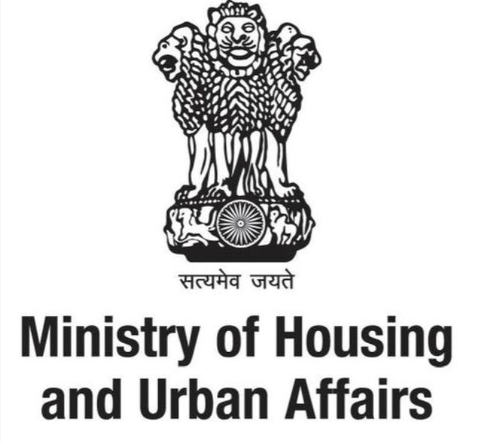Ministry of Housing and Urban Affairs
The Ministry of Housing and Urban Affairs (MoHUA) is a ministry of the Government of India responsible for formulating and administering policies, coordinating the activities of various central government agencies, state governments, and other nodal authorities to ensure the development of housing and urban infrastructure in India. The ministry was formed in 2017 by merging the Ministry of Housing and Urban Poverty Alleviation and the Ministry of Urban Development.
History
The Ministry of Housing and Urban Affairs traces its origins back to the Ministry of Urban Development, which was established in 1952. In 2006, the Ministry of Urban Employment and Poverty Alleviation was merged with the Ministry of Urban Development to form the Ministry of Housing and Urban Poverty Alleviation. In 2017, the Ministry of Housing and Urban Poverty Alleviation and the Ministry of Urban Development were merged to form the current Ministry of Housing and Urban Affairs.
Objectives and Functions
The primary objectives and functions of the Ministry of Housing and Urban Affairs include:
- Formulating and implementing policies for urban development, housing, and urban poverty alleviation.
- Coordinating the activities of various central government agencies, state governments, and other nodal authorities engaged in urban development and housing.
- Promoting sustainable urban development through the implementation of various schemes and programmes, such as the Smart Cities Mission, Atal Mission for Rejuvenation and Urban Transformation (AMRUT), and Pradhan Mantri Awas Yojana (Urban).
- Providing technical and financial support to state governments and urban local bodies for the development of urban infrastructure and housing.
- Regulating and managing the construction and real estate sectors through the Real Estate (Regulation and Development) Act, 2016 (RERA).
- Overseeing the functioning of the central public sector undertakings (CPSUs) and autonomous organizations under its administrative control, such as the National Buildings Construction Corporation (NBCC), the Housing and Urban Development Corporation (HUDCO), and the Delhi Metro Rail Corporation (DMRC).
Flagship Schemes and Programmes
The Ministry of Housing and Urban Affairs has launched several flagship schemes and programmes to promote urban development and housing in India, including:
- Smart Cities Mission: Launched in 2015, the mission aims to develop 100 smart cities across India that provide core infrastructure, a clean and sustainable environment, and a decent quality of life to their citizens through the application of smart solutions.
- Atal Mission for Rejuvenation and Urban Transformation (AMRUT): Launched in 2015, AMRUT focuses on providing basic services, such as water supply, sewerage, urban transport, and green spaces, to households and building amenities in cities to improve the quality of life.
- Pradhan Mantri Awas Yojana (Urban): Launched in 2015, PMAY(U) aims to provide affordable housing to the urban poor by 2022 through initiatives such as in-situ slum redevelopment, credit-linked subsidy scheme, affordable housing in partnership, and beneficiary-led construction.
- Swachh Bharat Mission (Urban): Launched in 2014, the mission aims to achieve 100% open defecation-free status and scientific solid waste management in all urban areas by 2019.
- Heritage City Development and Augmentation Yojana (HRIDAY): Launched in 2015, HRIDAY aims to preserve and revitalize the unique cultural heritage of selected Indian cities, while promoting inclusive and sustainable urban development.
Organizational Structure
The Ministry of Housing and Urban Affairs is headed by a cabinet minister, who is assisted by a minister of state. The administrative head of the ministry is the secretary, who is supported by additional secretaries, joint secretaries, and other officers. The ministry has several divisions and sections, each responsible for specific aspects of urban development and housing, such as urban planning, urban transport, housing, urban livelihoods, and capacity building.
Autonomous Organizations and CPSUs
The Ministry of Housing and Urban Affairs has several autonomous organizations and central public sector undertakings (CPSUs) under its administrative control, including:
- National Buildings Construction Corporation (NBCC): A Navratna CPSU involved in project management consultancy, real estate development, and construction services.
- Housing and Urban Development Corporation (HUDCO): A Miniratna CPSU that provides loans and technical support for housing and urban infrastructure projects.
- Delhi Metro Rail Corporation (DMRC): A joint venture between the Government of India and the Government of National Capital Territory of Delhi, responsible for the construction and operation of the Delhi Metro.
- National Institute of Urban Affairs (NIUA): An autonomous research and capacity-building organization that supports the ministry in formulating and implementing urban development policies and programmes.
- Building Materials and Technology Promotion Council (BMTPC): An autonomous organization that promotes the use of innovative and environment-friendly building materials and technologies.


